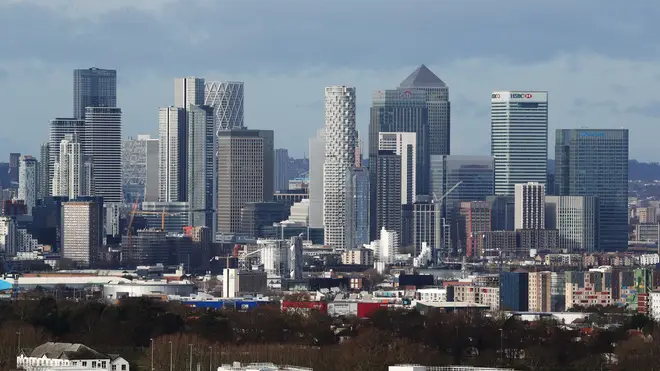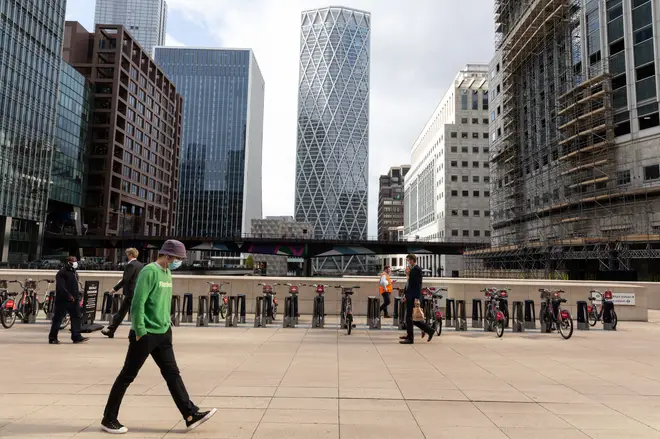
Paul Brand 3pm - 6pm
12 February 2021, 07:15 | Updated: 12 February 2021, 08:11

The UK's economy shrank by a record 9.9% last year, according to figures from the Office for National Statistics.
The official figures come after the Bank of England's chief economist said the economy was ready to bounce back "like a coiled spring" after the slump caused by the pandemic.
However, the UK is likely to avoid its first double-dip recession since the 1970s after GDP grew by 1 per cent in the fourth quarter.
Last year's contraction was the fastest Britain has seen since the 1920s.
A double-dip means two recessions within a short period of time, while a recession is defined as two consecutive quarters where the economy contracts.
Suren Thiru, the head of economics at the British Chambers of Commerce, said: "Despite avoiding a double-dip recession, with output still well below pre-pandemic levels amid confirmation that 2020 was a historically bleak year for the UK economy, there is little to cheer in the latest data."
All four sectors tracked by the ONS saw a drop in output, the statisticians said, with the highest drop coming in the construction sector, which contracted by 12.5%.
Read more: Bank of England tells banks to start preparing for negative interest rates
Read more: Lastminute.com faces legal action unless it pays £1m of outstanding refunds

Gillian Keegan speaks to LBC on National Apprenticeship Week
Chancellor Rishi Sunak said: "Today's figures show that the economy has experienced a serious shock as a result of the pandemic, which has been felt by countries around the world.
"While there are some positive signs of the economy's resilience over the winter, we know that the current lockdown continues to have a significant impact on many people and businesses.
"That's why my focus remains fixed on doing everything we can to protect jobs, businesses and livelihoods.
"At the Budget, I will set out the next stage of our plan for jobs, and the support we'll provide through the next phase of the pandemic."
Andy Haldane wrote in the Daily Mail that Britain will bounce back due to lockdown savings. Mr Haldane said if recent trends continued the savings "nest-egg" due to people not spending due to lockdown would be over £250 billion by July.
Read more: Police patrols ramped up to enforce quarantine for international travellers
Read more: Wales hits February Covid vaccine target with over 684,000 given first dose

The economy was helped in December by an easing of lockdown restrictions that had been in place in parts of the country in November.
It was also aided by increased buying in the run-up to Christmas, and stockpiling ahead of the end of the Brexit transition period.
The health sector grew by 2.4% after being involved with running coronavirus testing and tracing schemes across the UK.
ONS deputy national statistician for economic statistics Jonathan Athow said: "Loosening of restrictions in many parts of the UK saw elements of the economy recover some lost ground in December, with hospitality, car sales and hairdressers all seeing growth.
"An increase in Covid-19 testing and tracing also boosted output.
"The economy continued to grow in the fourth quarter as a whole, despite the additional restrictions in November.
"However, GDP for the year fell by nearly 10%, more than twice as much as the previous largest annual fall on record."
The 9.9% fall marks the worst year for the UK economy since records began.
GDP was first measured in the aftermath of the Second World War, and the measure has never previously dropped by more than 4.1%.
That last big drop was in 2009, but the Bank of England has also estimated historic GDP going bank centuries.
These measures come with caveats, but if correct, 2020 would be the worst year since 1921.